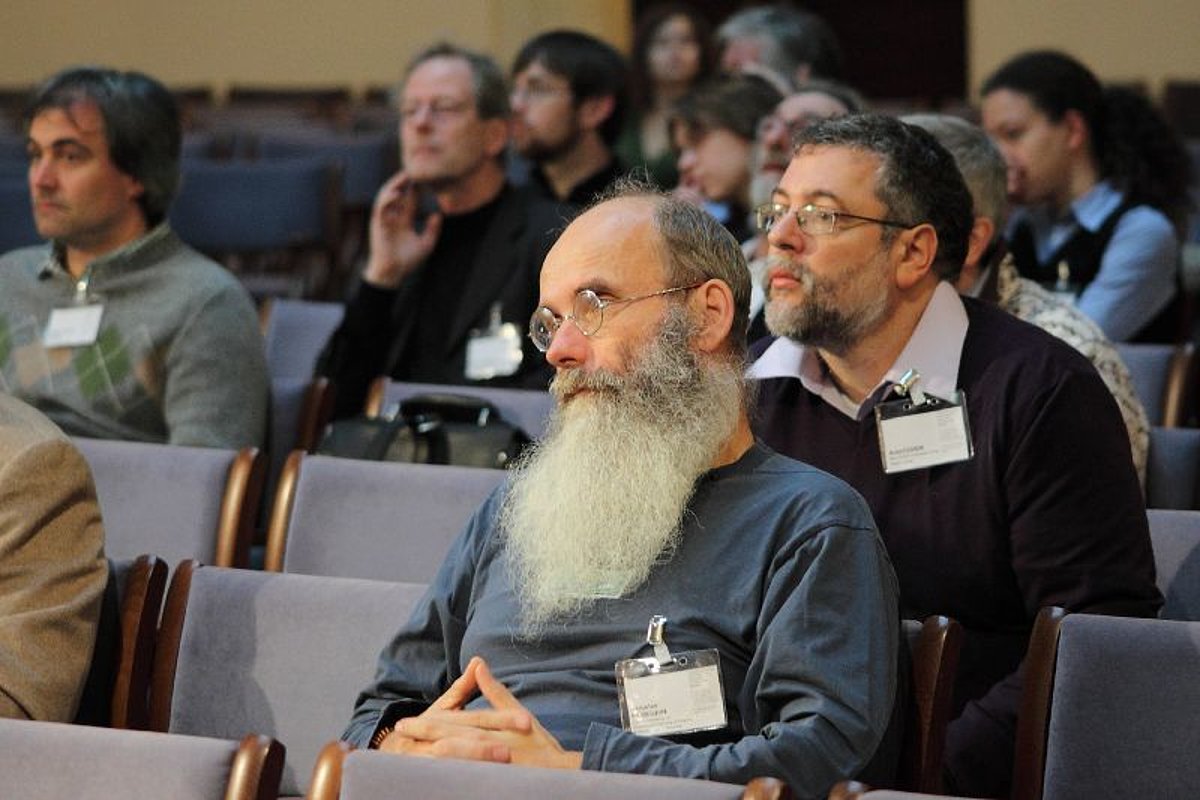
The collection holds the most significant reports presented during the 6th International Symposium of Cognitive Sciences at the University of Latvia in November, 2010. The reports were being edited, reviewed and selected in the course of one and a half years by experts from all over the world; only the best papers had been chosen for publishing.
Formal semantics is a theory of meaning – it studies the meaning of words, sentences and other linguistic or non-linguistic forms from the perspective of logical mathematics and connects this meaning with the cognitions of psychology research. Formal semantics and pragmatics (analysis of language use) is applied vastly in computational linguistics and theoretical and practical studies of language in the various contexts.
Editors of the collection: Prof. Barbara H. Partee (University of Massachusetts, USA), who is the founder of the modern formal semantics, Prof. Michael Glanzberg (Northwestern University, USA) and Assoc. Prof. Jurgis Skilters from the University of Latvia (UL).
The thematic focus includes the overlapping areas of logic, linguistics, communication and cognitive sciences. In greater detail, the collection explores formal, mathematically-oriented issues of the history of semantics (the report by B. Partee, the founder of the branch, gives a unique insight into the history of formal semantics from the author’s own perspective) as well as the semantics of beliefs and attitudes (M. Hegarty, University of Louisiana), issues of semantic focus (N. Kadmon and A. Sevi, Tel Aviv University), and the semantics of measurement (F. Landman, University of Tel Aviv, S. Rothstein, Bar-Ilan University, F.J. Pelletier, Simon Freiser University, Canada). The report by Prof. P. Schlenker (working at the universities of New York and Paris) studies the semantics of the language of the deaf.
It is a great achievement that the collection has engaged younger researchers as well as those distinguished experts who have set trends in the formal-mathematical semantics and related cognitive sciences in the last years. Among them we find prominent researchers such as Prof. Partee, Prof. Krifka (Berlin), founders of dynamic semantics M. Stokhof and P. Dekker (Amsterdam) as well as modern language researchers in cognitive sciences – N. Kadmon, F. Landman, F.J. Pelletier, C. Roberts, M. Romero, S. Rothstein, P. Schlenker, A. Szabolcsi. The authors come from the USA, Canada, the Netherlands, Israel, Russia, Czech Republic, Germany, Sweden and Latvia.
Publishing of the collection is one of the last years’ most significant events in formal semantics in Eastern Europe. Its compilation has been hard work – world’s most distinguished experts of the area from the Institute of Technology in Massachusetts, Stanford University, New York University as well as other outstanding research centres are among the reviewers.
The annual Baltic International Yearbook of Cognition, Logic and Communication is issued by the Centre of Cognitive Sciences and Semantics at the UL Faculty of Social Sciences in cooperation with Kansas State University New Prairie Press and MacMaster University in Hamilton. The yearbook is listed in the database of EBSCO quotable publications and is indexed.
The collection is partly financed from the ERAF project “Support of University of Latvia International Cooperation Projects and Other International Cooperation Activities in Science and Technologies”.
The yearbook is available electronically:
thebalticyearbook.org/journals/baltic/issue/current
Translated by students of the professional study programme Translator of the University of Latvia.

 LU konference
LU konference